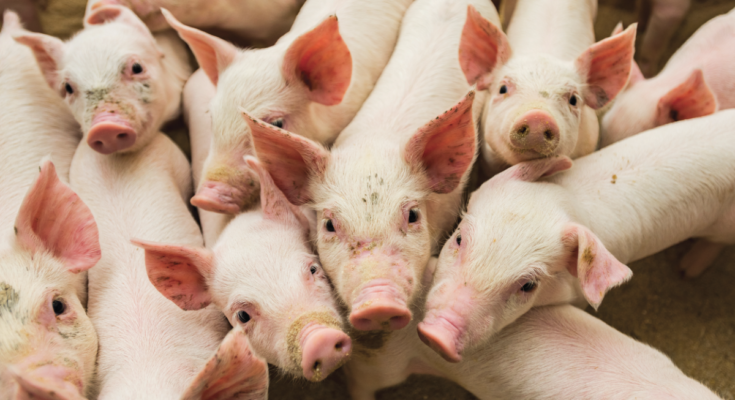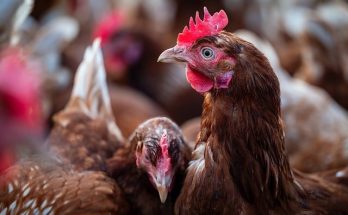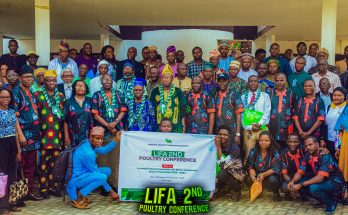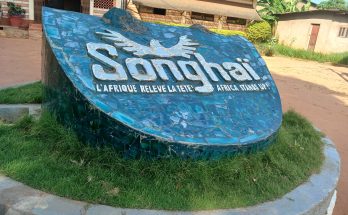African Swine Fever (ASF) started an unparalleled invasion of the World around 2006 with the first occurrence reported in Causasus region, Georgia in 2007 then spread throughout Western Europe, Central and Eastern Europe, Eurasia, Russia, South East and East Asia with major impact being felt in China which was the World’s premier pork producer. In 2018, China recorded several million pigs culled in an effort to halt its spread, while in the mid 2019, it was reported that the industry estimates over 150 million of pigs infected (Mason et al, 2020).
In Africa, the disease (ASF) is regarded as endemic but mildly epizootic and isolated of which 43 outbreaks have been reported in the Africa countries (Benin, Burkina Faso, Burundi, Cabo Verde, CAR, Chad, Cote d’ lvoire, Kenya, Mali, Mauritius, Namibia, Nigeria, Sierra Leone) by OIE over the years. On August 8, 2020 five countries in Africa (South Africa, Namibia, Nigeria, Sierra Leone and Zambia) reported the outbreak of ASF.
According to World Animal Health Information Department report from 2016 to 2020, Africa countries have reported a total of 128 outbreaks with 213,795 susceptible, Asia a total of 9,928 outbreaks with 8,107,951 susceptible and Europe a total of 4,271 outbreaks with 1,859,480 susceptible.
The African swine fever is dealing seriously with Nigeria pig farming industry which is one of the major livestock economic significant determinants in the southern parts of Nigeria. The poultry industry had persistently faced all manners of challenges that range from effect of climate change, which showed up as health challenges like avian Influenza that result to a total direct loses to the industry with a sum of #32,939,014,642 (SOAVET/Boehringer Data), Gut health challenges and recently nutritional challenges of lack and scarcity of maize with escalating prices to farmers.
The pig farmers are silently suffering worse scenarios with a record of over 300,000 deaths of pigs in some pig cooperative farming population in South West of Nigeria. We can no more remain silent on this devastating effect of ASF on our emerging piggery industry population in Nigeria and most especially in the Southern regions of Nigeria.
Concerned livestock investors in Nigeria had called LIFA attention to a need for vigorous advocacy on awareness, Government intervention and palliative prophylaxis as well as consumer’s education that this disease is never a human disease and cannot be transmitted to man, unlike avian influenza.
LIFA with her lean resources will start to open up ADVOCACY discussions on the fate of pig farmers, their stocks and market disruption presently going on in Nigeria. LIFA is an NGO and does not charge revenue on all her services to the industry nor promote any product in exchange for her advocacy and capacity development in Africa.
We rely on donations from livestock philanthropists and associations who believe in our positive activities for the industry (https://blog.lifango.org/donate/ ). We are limited in our resources to preach advocacy for all livestock challenges without support of donations from some institutions within and outside Africa.
We have recently promoted the anti-COVID-19 value of egg and the need to make egg part ingredients of indigenous home food recipes. We believe from our feedback that many Nigerians now adopt these recipes and the action has synergized with poultry Association promotion to increase egg consumption in Nigeria.
LIFA supported the poultry Association vigorously to call for alleviation of the ban on importation of maize to supplement short gap scarcity with empirical evidence. All our regional training in Nigeria with slight entertainment is fully supported by Zoetis Alpha initiatives a subset of Melinda and Bill Gates, and so far we have trained over 600 Farmers with over 30% gender equity.
We speak to Nigeria livestock farmers and integrated organizations to donate and support this unique advocacy NGO first of its type for the livestock industry in Nigeria.




